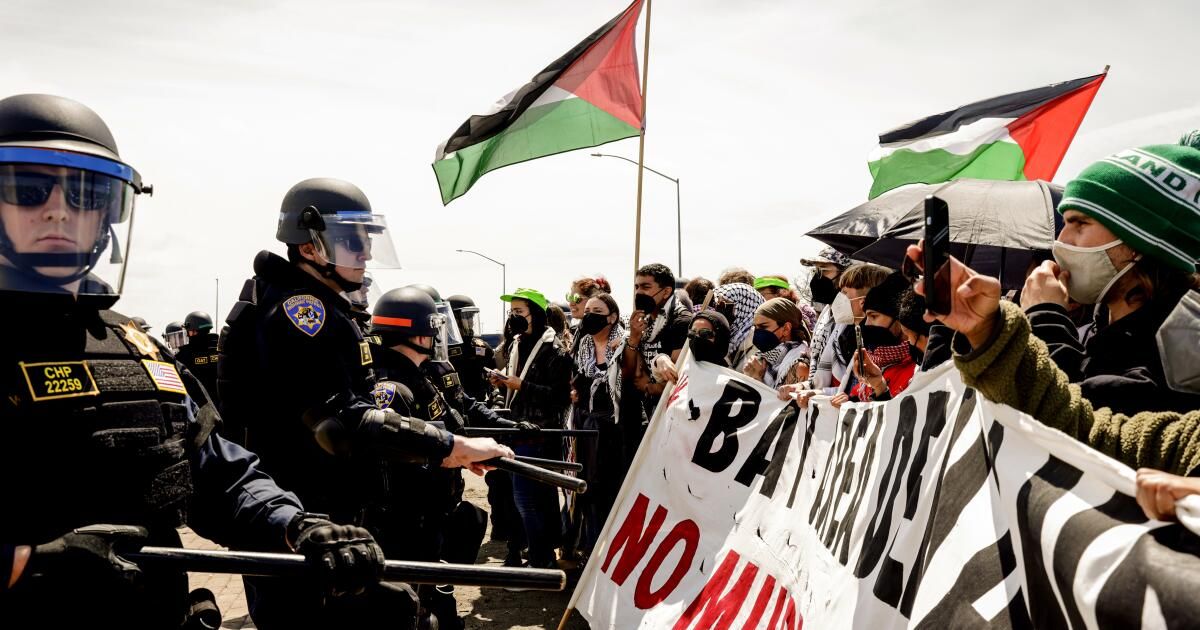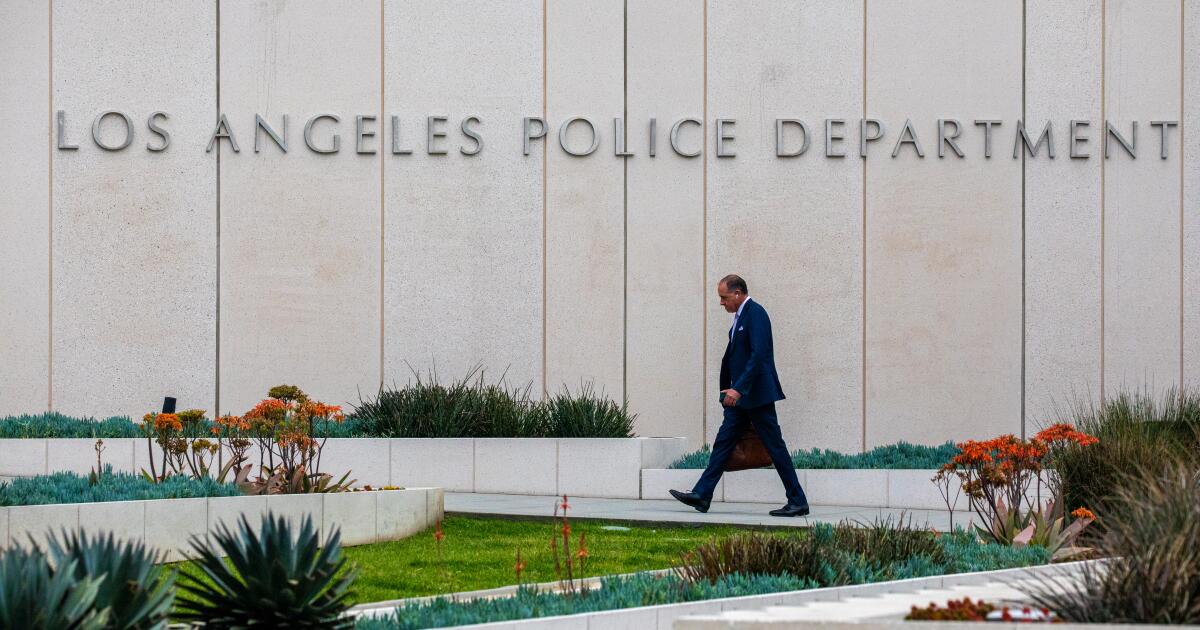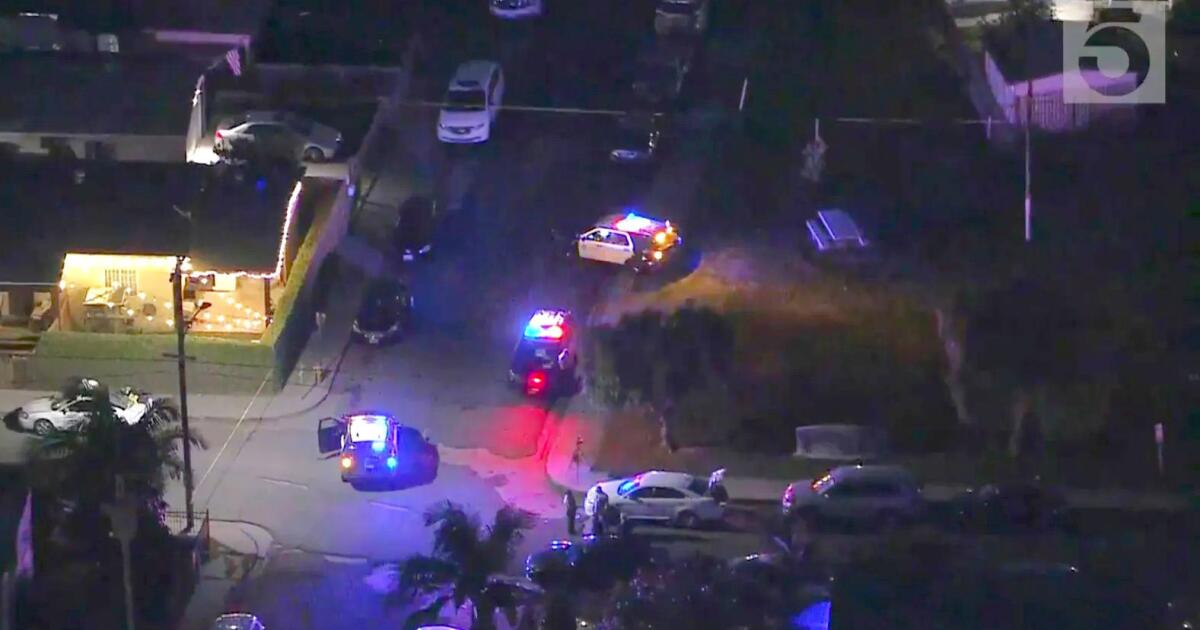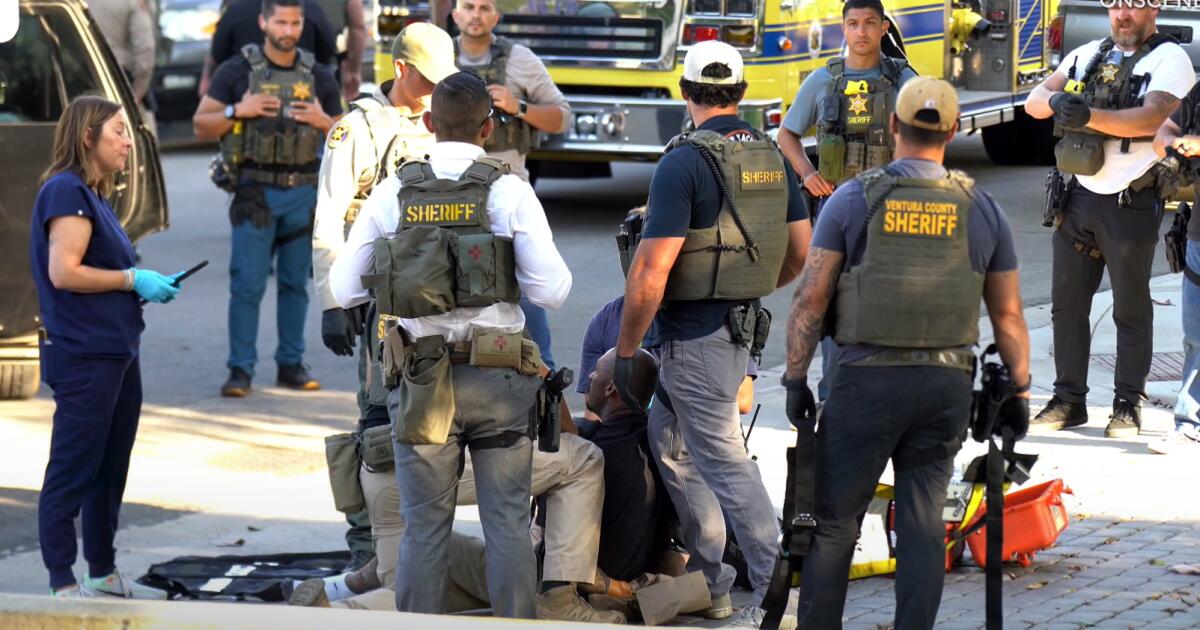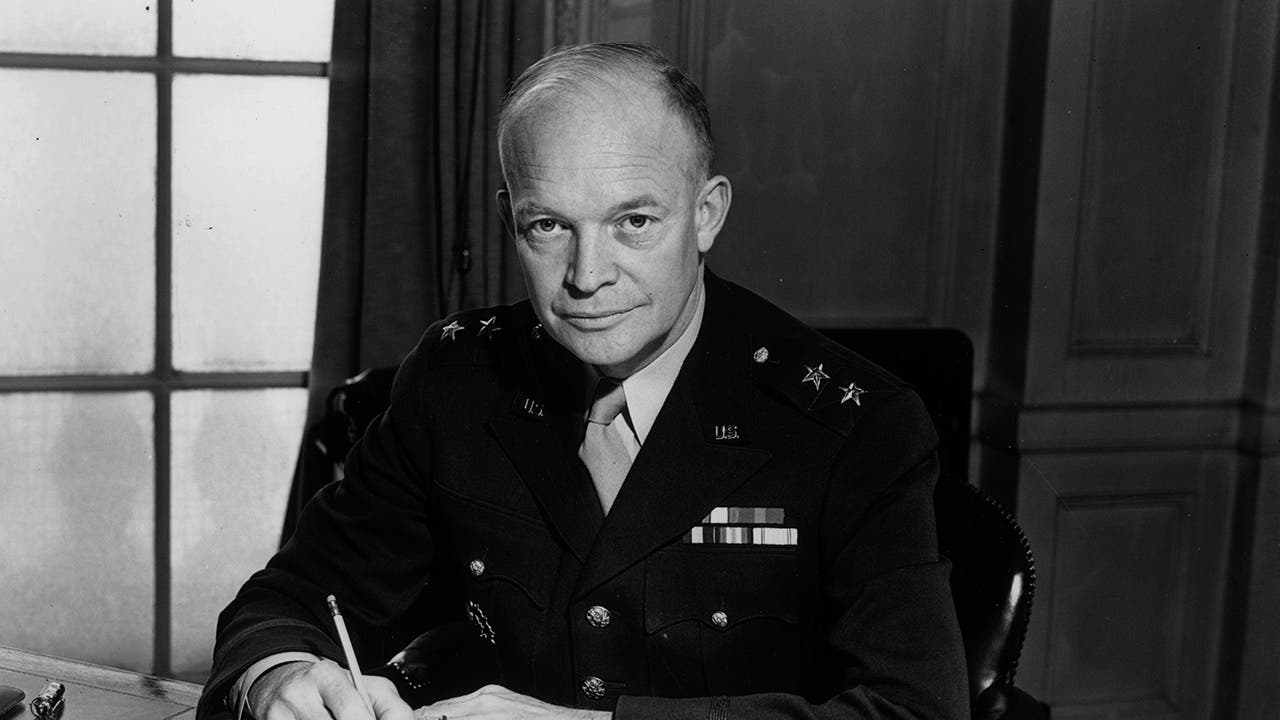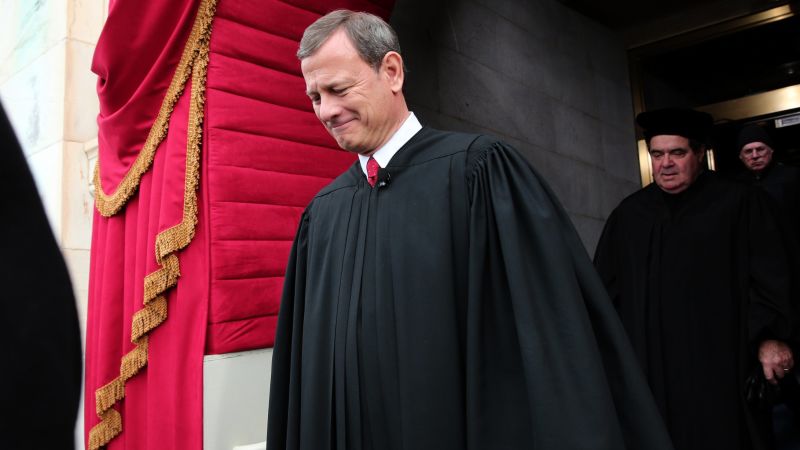Protesters blocked traffic on the Golden Gate Bridge in mid-April to draw attention to the war in Gaza and the suffering of Palestinian civilians whose cities were being bombed.
Now, San Francisco authorities are prosecuting them for trapping people in their cars on the bridge for hours. The San Francisco Public Defender responded that officials were “using the law as a weapon” against protesters and wants the charges dropped.
The San Francisco District Attorney's office announced in a news release Monday that arrest warrants have been issued for the 26 people who participated in the April 15 protest. All 26 people turned themselves in to authorities, according to the California Highway Patrol, but have not appeared in court or been assigned legal representation.
“While we must protect avenues for free speech, the exercise of free speech cannot compromise public safety,” District Attorney Brooke Jenkins said in a statement. “The demonstration on the Golden Gate Bridge created a level of safety risk, including extreme threats to the health and well-being of those trapped, that we as a society cannot ignore or allow.”
The group, dubbed the “Golden Gate 26” by supporters, could be represented by the San Francisco Public Defender's Office, which criticized the charges and cited a higher moral authority for the protest.
Pedestrians and bicyclists wait outside the pedestrian gate on the south side of the Golden Gate Bridge as the bridge is closed due to protesters on April 15 in San Francisco.
(Lea Suzuki/Associated Press)
“The protesters oppose U.S. tax dollars being used to fund attacks against the people of Gaza, which the International Criminal Court has deemed crimes against humanity,” San Francisco Public Defender Mano Raju said in a statement. “Our attorneys intend to vigorously defend anyone we are assigned to represent.”
The district attorney's office charged the 26 with trespassing to interfere with a business, obstruction of a public way, unlawful assembly, refusal to disperse at a riot, failure to comply with police orders and 38 counts of false imprisonment. Eight of the defendants also face a felony conspiracy charge and the rest face a misdemeanor conspiracy charge.
Anti-war protests in Gaza have taken over highways, university campuses and city streets since Hamas's Oct. 7 attack on Israel, where militants killed 1,200 Israelis and took some 250 hostages, of whom about 115 remain missing. Since then, Israeli forces have killed nearly 40,000 Palestinians in Gaza, according to Gaza health officials, who include both Hamas forces and civilians in their casualty counts.
Protesters gathered shortly before 8 a.m. on April 15 at the Golden Gate Bridge, where they abandoned their vehicles and chained their bodies while holding signs. Police and other officials repeatedly warned members of the group that they would be arrested if they didn’t move, but the group ignored them, according to the district attorney’s office.
A protester later identified as Sara Cantor told police that the demonstrators would not resist arrest, but that the protesters who were wedged between vehicles with a large metal pipe would not voluntarily comply with authorities, the district attorney's office said. All of the protesters were arrested and removed from the bridge, and traffic lanes were reopened by 12:20 p.m.
About 12,000 vehicles travel southbound and 8,000 vehicles travel northbound on the bridge between 8 a.m. and noon, according to the Golden Gate Bridge District, which the district attorney's office says lost more than $162,000 in revenue due to the protest.
Jenkins took to social media after the protest to call for anyone trapped on the Golden Gate Bridge to come forward, saying they may be entitled to restitution and other rights guaranteed by state law.
Prosecutors said several hundred people were held against their will at the mercy of the protest. According to court documents, people caught in the middle of stopped traffic missed work and important medical appointments, and a mother with her baby did not have water for infant formula.

